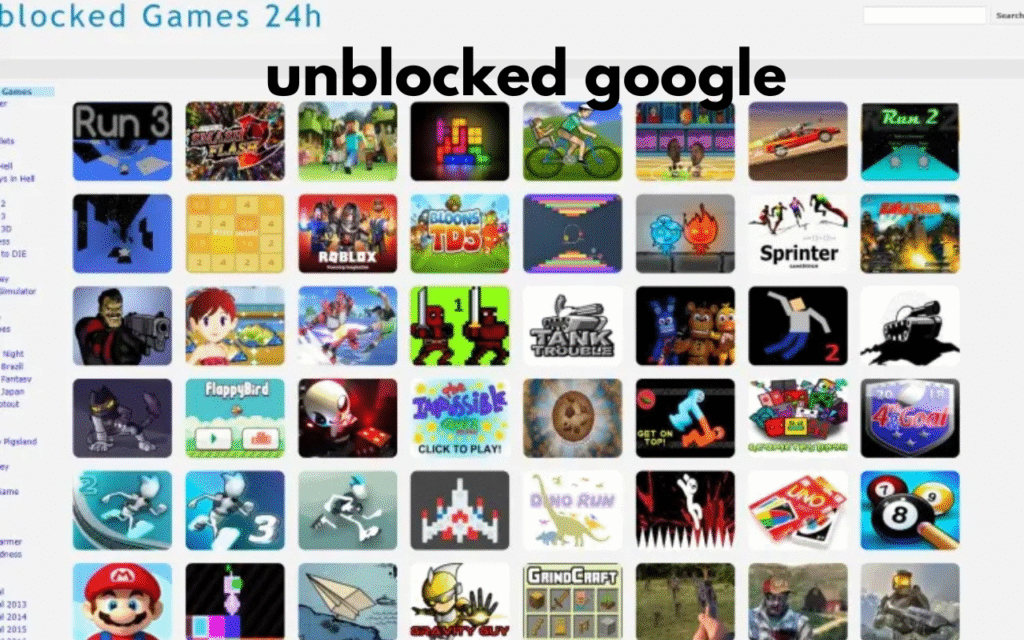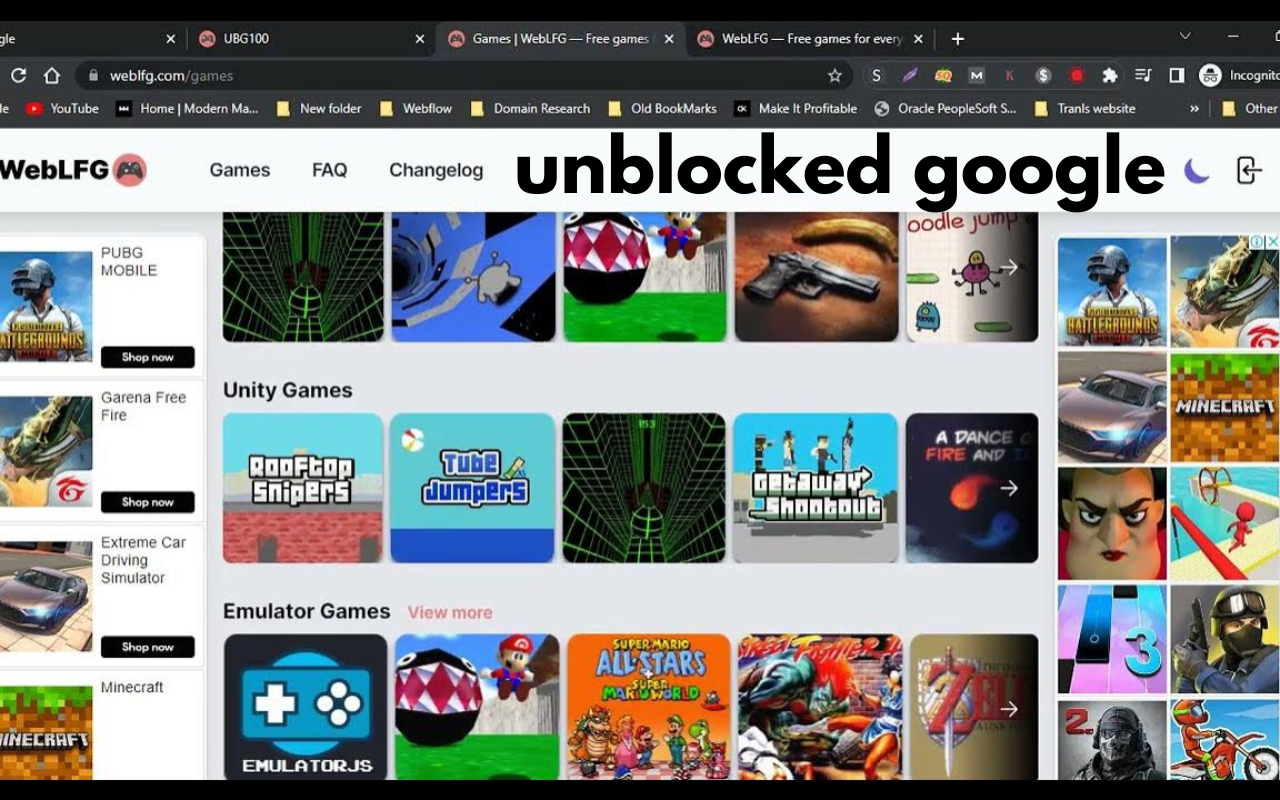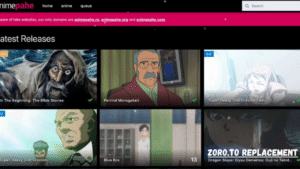Unlocking the Web: How to Access Unblocked Google Anywhere, Anytime
In today’s digital-first world, Google is not just a search engine—it’s the backbone of modern internet usage. Whether you’re looking up facts, accessing your Gmail, watching videos on YouTube, or collaborating via Google Drive, Google services have become essential to personal, academic, and professional life. However, for millions around the world, unrestricted access to Google isn’t a given. From government censorship to institutional firewalls, many users find themselves locked out of the world’s most widely-used digital ecosystem, often turning to search for unblocked Google solutions.
The reasons for blocking Google vary widely. In certain countries, political motivations and content control policies lead to sweeping restrictions on major platforms like Google. Elsewhere, educational institutions and workplaces may block access to reduce distractions or maintain productivity. Regardless of the reason, the impact is often frustrating and limiting—especially for students, digital nomads, journalists, and professionals who rely heavily on Google services for daily tasks.
This article aims to explore the multifaceted issue of accessing unblocked Google services. We’ll uncover why blocks occur, explore safe and legal methods to bypass restrictions, discuss ethical and security considerations, and finally, highlight the tools and best practices for seamless browsing. Whether you’re in a restricted environment or just looking for knowledge, this comprehensive guide is your key to unlocking the web.
Why Google Gets Blocke
Understanding the motivations behind blocking Google can help users better navigate—and potentially resolve—access issues. One major cause is government censorship. In regions such as China, North Korea, and parts of the Middle East, access to Google and its suite of tools is heavily restricted or completely banned. Governments often cite national security, political stability, or cultural preservation as reasons for these restrictions. However, critics argue that such censorship limits freedom of information and impedes innovation and education, making it essential for many to seek unblocked Google alternatives.
Another common reason for blocking Google is institutional control. Schools, colleges, and even corporate offices frequently impose network restrictions to maintain focus and productivity. Google services like YouTube or Google Play might be seen as distractions, while even Gmail or Google Docs can be blocked if they conflict with internal systems or data security protocols. Although these policies are often well-intentioned, they can sometimes hinder legitimate learning or work-related activities, prompting users to look for unblocked Google access points.
Network bandwidth management is another technical reason. Since services like Google Drive and YouTube can consume a lot of data, institutions with limited bandwidth may choose to block them to prioritize essential functions. Additionally, firewalls and filters at both organizational and governmental levels can unintentionally block Google services due to broad or outdated configuration rules.
Lastly, cybersecurity concerns may play a role. Some networks block Google products due to fears of malware, phishing, or unauthorized data sharing. However, this often reflects a lack of understanding or proper IT support rather than a fault with Google itself. Overall, while the reasons may differ, the outcome remains the same: restricted access that can significantly affect users’ digital experiences—especially for those in need of unblocked Google access.
Safe and Legal Ways to Access Unblocked Googl

If you’re facing restricted access to Google, the good news is that there are multiple legal and secure methods to regain functionality—without breaking any laws or violating institutional policies. The first and most popular option is using a Virtual Private Network (VPN). A VPN encrypts your internet traffic and routes it through a server in a different location, thereby masking your IP address and allowing access to blocked services. For users trying to access unblocked Google, a VPN is one of the most effective and dependable tools available.
Another alternative is proxy servers, which act as intermediaries between your device and the internet. While proxies can help bypass restrictions, they typically offer less security than VPNs and might not support encrypted connections. This makes them suitable for occasional browsing but not for activities involving sensitive data or login credentials—especially if you’re accessing unblocked Google accounts like Gmail or Google Docs.
Tor Browser is another option, especially in highly censored regions. Tor anonymizes your traffic by routing it through multiple nodes, making it extremely difficult to trace. However, due to its slower speeds and association with deep web activities, it may not be ideal for everyday use or streaming Google services like YouTube.
Sometimes, a simpler solution is using alternative DNS services like Google DNS or Cloudflare DNS. Changing your device’s DNS settings can help circumvent local blocks imposed by your internet service provider (ISP). This method is particularly effective for resolving regional blocking issues without the need for additional software and can open access to an unblocked Google experience quickly and safely.
Importantly, users should always check the legality of bypassing restrictions in their country or institution. In some places, using VPNs or proxies can be punishable by law. Always prioritize ethical and safe browsing practices to avoid any legal or disciplinary repercussions while accessing unblocked Google services.
Best Tools and Practices to Ensure Seamless Access
Choosing the right tools is essential for maintaining reliable and secure access to unblocked Google services. As previously mentioned, VPNs are a top-tier solution. Look for VPNs that offer high-speed servers, no-logs policies, and dedicated apps for all your devices. Providers like NordVPN, ExpressVPN, and Surfshark are well-known for their reliability and security. Most premium VPNs also offer features like kill switches and split tunneling, enhancing both your privacy and connection stability.
If you’re concerned about budget, there are free VPNs available, but caution is advised. Free services often come with data caps, limited server locations, and potential privacy risks. It’s better to invest in a reputable provider or at least use one that has a transparent privacy policy and good user reviews—especially when dealing with sensitive data over unblocked Google connections.
In addition to VPNs, browser extensions can provide temporary relief from restrictions. Extensions like Hola or Browsec allow users to route traffic through different countries, although they are less secure than full VPN apps. Be wary of unknown or suspicious extensions that might compromise your data or your access to unblocked Google tools.
From a practical standpoint, it’s wise to maintain device security. Ensure your operating system and browsers are up to date, use antivirus software, and avoid clicking on suspicious links. Keeping your digital hygiene clean is crucial when navigating around restrictions.
Finally, educating yourself on digital rights and regional laws will keep you informed and safe. Organizations like the Electronic Frontier Foundation (EFF) and Access Now offer excellent resources for those interested in internet freedom and privacy. Knowledge is power—and in this case, it’s the key to accessing unblocked Google safely and consistently.
Conclusion
Access to Google is more than a convenience—it’s a gateway to education, communication, and empowerment. Whether you’re a student doing research, a professional attending virtual meetings, or simply trying to stay informed, blocked access can be a significant barrier. Fortunately, there are reliable, safe, and legal methods to navigate these roadblocks and enjoy unblocked Google access.
By understanding why restrictions exist, leveraging the right tools, and following ethical practices, users can regain access to the services they depend on. The digital world is vast, and no one should be left behind due to arbitrary or outdated restrictions. With the right knowledge and resources, you can truly unlock the web and make the most of what unblocked Google has to offer—no matter where you are.
Frequently Asked Questions (FAQs)
Is it legal to use a VPN to access unblocked Google?
A: It depends on your country or institution. In many places, VPN usage is legal, but always verify local laws before using one.
What is the best VPN for accessing unblocked Google services?
A: Trusted providers like NordVPN, ExpressVPN, and Surfshark are highly recommended for their speed, reliability, and security.
Can schools detect VPN use when trying to access unblocked Google?
A: Some advanced networks may detect VPN traffic. Use obfuscated servers or stealth modes to bypass VPN blocks.
Are free proxies safe to use for unblocked Google access
A: Many free proxies lack encryption and can expose your data. Use with caution and never share sensitive information through them.
Can changing DNS settings unblock Google services?
A: Yes, using alternative DNS services like Google DNS or Cloudflare DNS can sometimes bypass ISP-level restrictions and help you access unblocked Google.
You May Also Read: https://otswroldtime.com/augusta-precious-metals-lawsuit/













Post Comment